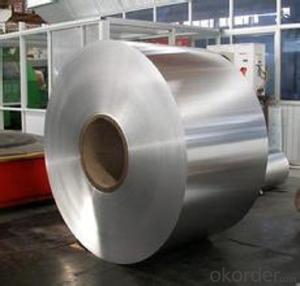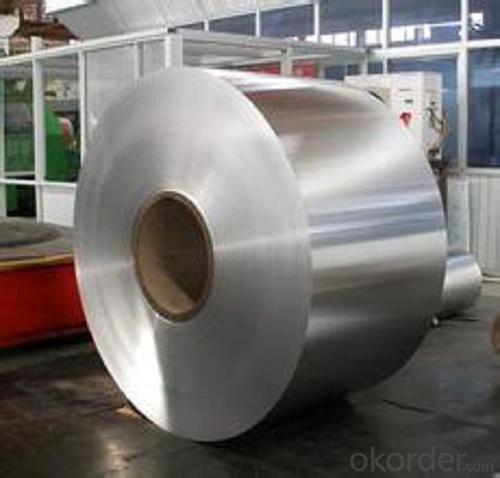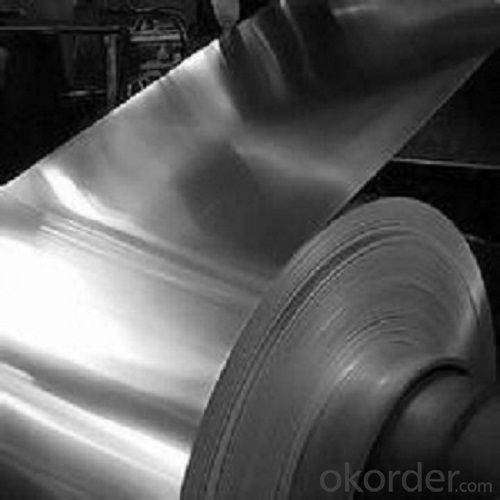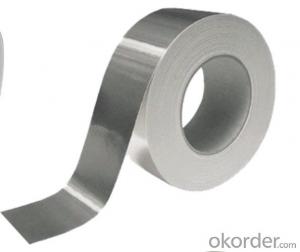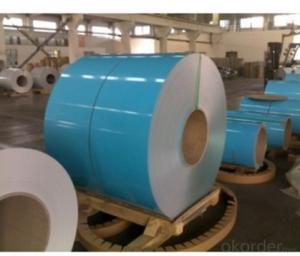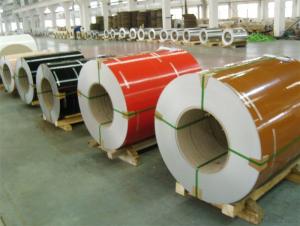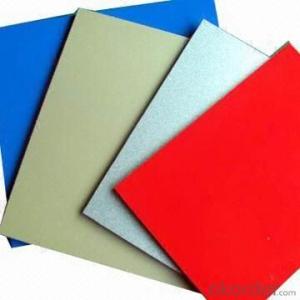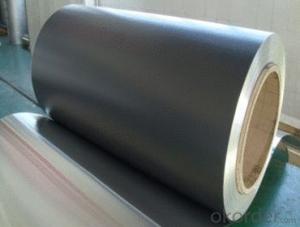PVC Coated Aluminum Coil for Primary Aluminium Coil Remelting and Extrusion
- Loading Port:
- Shanghai
- Payment Terms:
- TT OR LC
- Min Order Qty:
- 2.5
- Supply Capability:
- 5000 m.t./month
OKorder Service Pledge
OKorder Financial Service
You Might Also Like
Specification
Primary Aluminium Coil for Remelting and Extrusion
l Product Introduction
It is widely used in manufacturing aluminum thin sheet and aluminum foil. It is suitable for further machining with original standard quality. It is easy to be controlled and be manufactured to according to requirements.
1. Temper: O, F, HXX
2. Thickness: Thickness
3. Width: 1000-1500mm
4. Type: Coil/Roll
5. Surface Treatment: mill finished
6. Application: Decoration, packaging, printing, covering
7. Standard size: Upon customer's demand
8. Quantity: 18tons(±10%)in one 20 feet container
l Product Description
Specification:
Primary Aluminium Coil for Remelting and Extrusion | ||||||||||||||||
Aluminium Coils, non-alloy and alloy products have many different applications, they are used windly throughout construction, building, decoration, lighting, metal nameplate, aircraft and aerospace structures, etc. | ||||||||||||||||
ALLOY | TEMPER | THICKNESS | WIDTH(mm) | LENGTH(mm) | ||||||||||||
1050,1060,1070, | O, F, H12, 114, H18, H22, H24, H26, H32, H34,H36,H111, H112,H314 | 3.0-10.0 | 1000-1500mm | in Coil | ||||||||||||
chemical composition | ||||||||||||||||
Alloy | Si | Fe | Cu | Mn | Mg | Cr | Ni | Zn | Ca | V | Ti | Other | Min.Al | |||
1050 | 0.25 | 0.40 | 0.05 | 0.05 | 0.05 | - | - | 0.05 | - | 0.05 | 0.03 | 0.03 | 99.50 | |||
1060 | 0.25 | 0.35 | 0.05 | 0.03 | 0.03 | - | - | 0.05 | - | 0.05 | 0.03 | 0.03 | 99.60 | |||
1070 | 0.20 | 0.25 | 0.04 | 0.03 | 0.03 | - | - | 0.04 | - | 0.05 | 0.03 | 0.03 | 99.70 | |||
1100 | 0.95 | 0.05-0.2 | 0.05 | - | - | - | 0.10 | - | - | - | 0.05 | 99.00 | ||||
3003 | 0.60 | 0.70 | 0.5-0.2 | 1.0-1.5 | - | - | - | 0.10 | - | - | - | 0.15 | 96.95-96.75 | |||
3004 | 0.30 | 0.70 | 0.25 | 1.0-1.5 | 0.8-1.3 | - | - | 0.25 | - | - | - | 0.15 | 96.55-95.55 | |||
l Packaging & Delivery
Packaging detail: Standard seaworthy exporting carton, Wooden pallets, waterproof paper and plastic coverage or as customer's requirement
Delivery detail: about 25 days from received oiginal L/C or advance payment
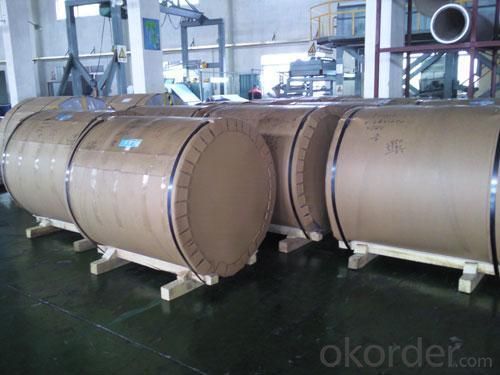
l Company Profile
CNBM International Corporation, China National Building Materials (Group) Corporation, is one of the largest companies in China building material & equipment industry, with 42,800 employees and sales in 2005 of US Dollar 4.395 billion. In 2006, China National Building Material Company Limited was listed on Hong Kong Stock Market with the stock code as 3323. |
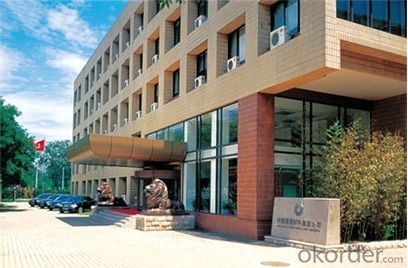
l CNBM World Wide
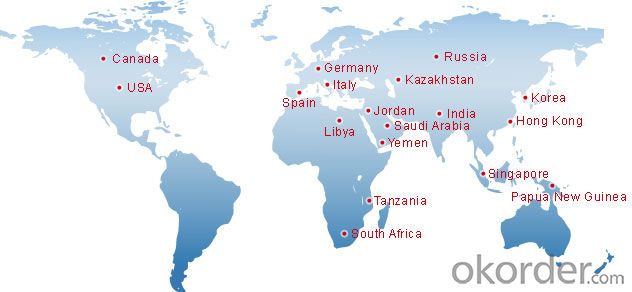
l Product Images
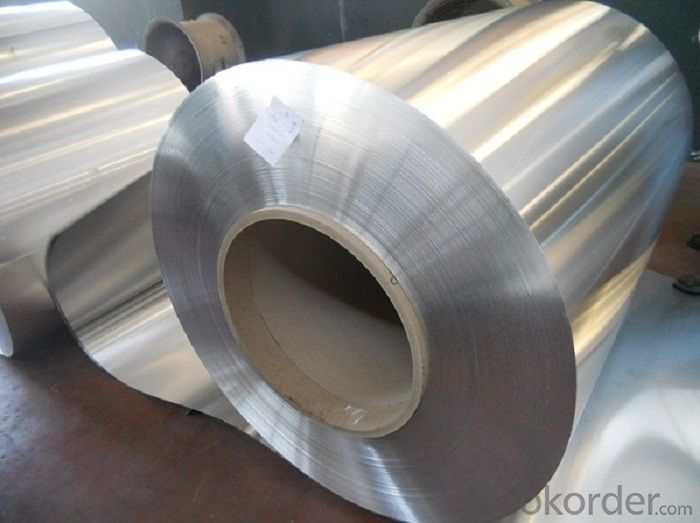
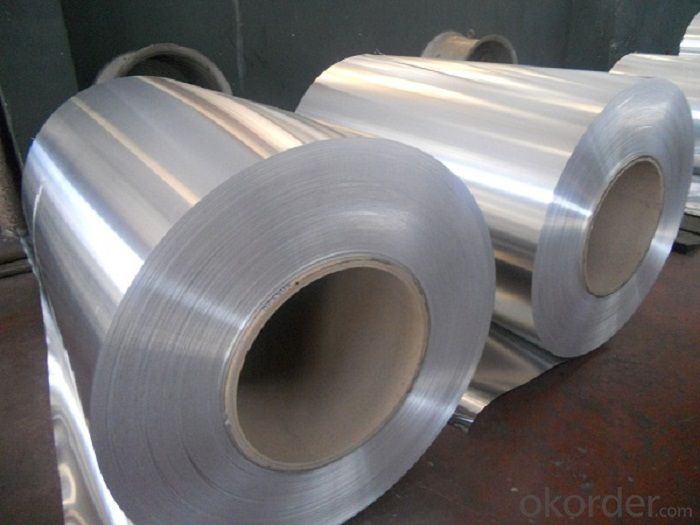
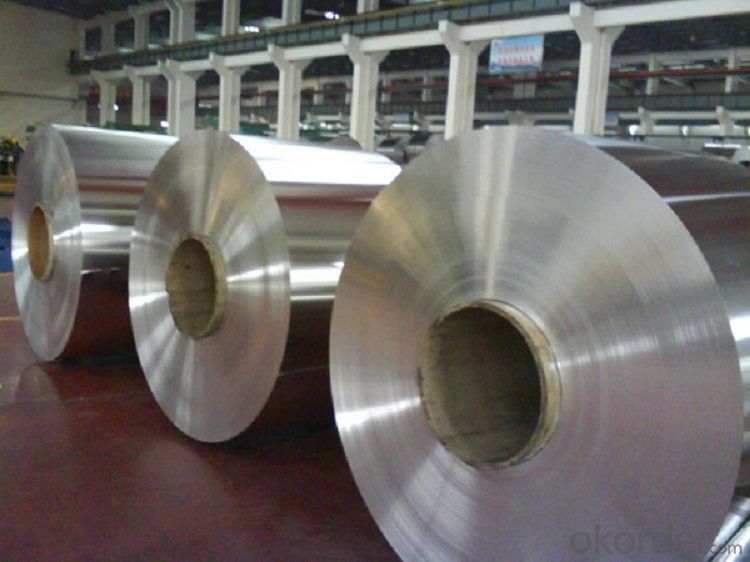
l Certificates
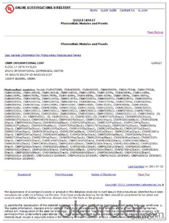
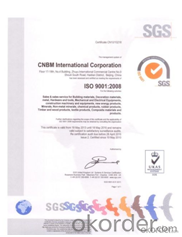
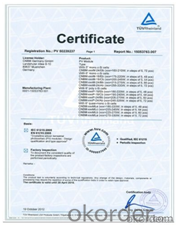
l FAQ
Q: Do you provide free samples?
A: Yes, free samples will be sent to you on freight at destination.
Q: Can I get your latest products catalogue?
A: Yes, it will be sent to you in no time.
Q: What is the MOQ?
A: 2.5 tons
Q: What are your payment terms?
A: We accept L/C, T/T.
- Q: How are aluminum coils tested for dimensional accuracy?
- Aluminum coils are tested for dimensional accuracy through various methods to ensure that they meet the required specifications. One common method is the use of specialized equipment such as calipers, micrometers, and digital measuring devices. These tools are used to measure the dimensions of the coils, including their width, thickness, and length, with high precision. During the testing process, a sample coil is selected and measured at different points along its length to check for any variations or deviations from the specified dimensions. This helps to identify any potential issues with the coil's dimensional accuracy. In addition to manual measurements, advanced technologies such as laser scanning systems and optical sensors are also utilized. These technologies provide non-contact measurements, allowing for faster and more accurate assessments of the coil's dimensions. Laser scanners create a digital representation of the coil's surface, which can be compared to the desired specifications to determine if any deviations exist. Furthermore, computerized systems are employed to analyze the collected data and generate detailed reports. These reports provide comprehensive information regarding the coil's dimensional accuracy, highlighting any discrepancies from the required standards. This data analysis enables manufacturers to identify and address any potential problems promptly. Overall, aluminum coils undergo stringent testing procedures to ensure their dimensional accuracy. The combination of manual measurements, advanced technologies, and computerized analysis provides a thorough assessment of the coils' dimensions, allowing manufacturers to maintain high-quality standards and deliver products that meet the precise specifications demanded by various industries.
- Q: What precautions should be taken to ensure the safe and efficient transportation of aluminum coils?
- <p>The best way to handle aluminum coil during transportation involves using proper lifting equipment, ensuring secure strapping, and maintaining a stable and dry environment. Use slings or lifting beams specifically designed for metal coils to prevent damage. Ensure the coil is strapped tightly to prevent shifting during transit. Keep the coils covered to protect from moisture and dirt. Always follow the manufacturer's guidelines for weight limits and handling procedures.</p>
- Q: Can aluminum coils be used in electrical conductors?
- Yes, aluminum coils can be used in electrical conductors. Aluminum is a highly conductive metal, second only to copper in terms of electrical conductivity. It possesses excellent electrical properties, making it suitable for use in various electrical applications, including the production of coils. Aluminum coils are commonly used in electrical conductors for applications such as transformers, motors, generators, and power transmission lines. They are lightweight, cost-effective, and offer good thermal conductivity. However, it is important to note that aluminum has a lower tensile strength compared to copper, so proper design considerations must be taken into account to ensure the coil's stability and durability. Additionally, aluminum coils may require larger cross-sectional areas compared to copper coils to achieve the same electrical performance.
- Q: What is the thermal conductivity of aluminum coils?
- The thermal conductivity of aluminum coils is high, making them efficient in transferring heat.
- Q: How do I write ionic formula for Sodium Aluminum Silicate? Please explain in a easy way ,,,,,,,,,,,,
- There are literally thousands of different kinds of sodium aluminum silicate, and they do not have simple formulas, because the aluminum and silicon form giant oxygen bridged anions. Most clay minerals are of this type, more or less, although potassium is more common in clays than sodium. So there is no easy way. The empirical formula is sometimes written as a ratio of Na2O to Al2O3 to SiO2, but this gives no information about the structure, only the overall composition. Look up clay minerals online. Wikipedia might be a good start. Also the website mentioned in the other answer.
- Q: Can aluminum coils withstand high temperatures?
- High temperatures are easily withstood by aluminum coils. With a melting point of around 660 degrees Celsius (1220 degrees Fahrenheit), aluminum possesses a relatively high melting point. Consequently, it becomes a suitable choice for applications in high-temperature environments. Moreover, the exceptional thermal conductivity of aluminum facilitates efficient heat dissipation. Due to this characteristic, aluminum coils frequently find application in heat exchangers and diverse heating applications. Nevertheless, it is crucial to acknowledge that the temperature limit for aluminum coils may differ depending on the specific alloy and application.
- Q: What are the different width tolerances for aluminum coils?
- The different width tolerances for aluminum coils can vary depending on the specific industry and application. However, common width tolerances for aluminum coils range from +/- 0.005 inches to +/- 0.030 inches.
- Q: what is the final temperature of 250g of water whose initial Temperature is 25 C if 80-g of aluminum initially at 70 C is dropped into the water? The specific heat of aluminum is 0.215 cal/C g how do you do it? our teacher did not show us how and it is not in the book
- Given Data :-- Mass : Aluminium m(a) = 80 g, Water m(w) = 250 g Initial Temperature : Aluminium t? = 70 C and Water t?' = 25 C Final Temperature of both ( aluminium and water ) = T C (assume) Since Aluminium is initially at a temperature higher than that of water, it (aluminium) will lose heat to water . Heat lost by Al = Q = mass of Aluminium x sp.heat capacity of Aluminium x Temp. change = Q = 80 x 0.215 x ( 70 - T ) cal Heat gained by water = Q' = mass of water x sp.heat capacity of water x Temp. change = Q' = 250 x 1 x ( T - 25 ) According to principle of calorimetery . = Heat lost by aluminium = heat gained by water. = 250 x 1 x ( T - 25 ) = 80 x 0.215 x ( 70 - T ) = T = 27.9 C .... ( Rounded to one decimal place )...... Answer Answer .
- Q: Does anyone know if aluminum skateboards are good?
- I haven't seen one since the old QuickSilver-Silver Surfer(circa 1979). They look great, but they become useless when scratched. Which means....you can't really use them for anything. They're not as flexible as wood....and.......Wait until you get hit in the shin with an aluminum skateboard. Aircraft metal my(explicative deleted). My guess is they're inexpensive because they're trying to get the word out. The company owners probably no very little about skateboarding.
- Q: ... of aluminum atoms?(mole = 6.022x10^23)
- WHEN IM OUT ON THE SEA WITH ME CREW I LIKE TO THINK THAT PERHAPSY WE CAN LOOT A BARGE FULL 'O THAT WONDROUS MATERIAL YE CALL ALUMINUM AS FER MOLES, THEY CAN BE QUITE THE PESTS AROUND YER GARDEN AND WHAT-NOT
Send your message to us
PVC Coated Aluminum Coil for Primary Aluminium Coil Remelting and Extrusion
- Loading Port:
- Shanghai
- Payment Terms:
- TT OR LC
- Min Order Qty:
- 2.5
- Supply Capability:
- 5000 m.t./month
OKorder Service Pledge
OKorder Financial Service
Similar products
Hot products
Hot Searches
Related keywords
